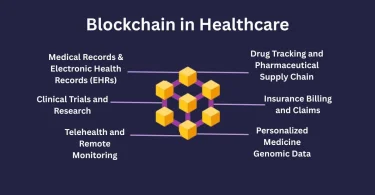Blockchain and Transformation of Business.
Implementing changes to core business processes can be a daunting task such as the introduction of new services. Although changes are challenging in some instances, many external factors drive companies toward transformation. Among these factors, blockchain technology stands out as a key factor in business transformation in several industries. The potential for blockchain to transform entire business ecosystems is undeniable. As such, it is crucial to consider the long-term implications of blockchain digital transformation. Rather than focusing solely on short term improvements in individual operations, tasks or processes, business leaders must have a comprehensive vision of how blockchain technology can transform all aspects of their business.
In the financial sector, blockchain technology has emerged as a game-changer that is revolutionizing how we run business. While diamond miners hope it will help put an end to the trade of conflicted diamonds, banks believe it may be the future of financial transactions. Financial transactions now have more options and are quicker, safer and more efficient because of blockchain’s decentralized and open nature.
Blockchain in Finance: Transforming the Way We Do Business.
In a world full of technologies, blockchain is changing the way we conduct business in many significant ways.
Assistance in the Field of Accounting.
The field of accounting is one of the primary examples of how blockchain technology can revolutionize business operations. Due to the complexity of tax codes, the challenges of managing operations across different locations, and the need for accuracy, blockchain technology can improve management in all of these areas. With its transparent nature, blockchain provides visibility to all authorized users for transactions, which can reduce the need for auditors to sample and validate transactions, freeing up more time for auditors to focus on controlling and investigating anomalies.
Aid in Advertising and Marketing Assistance.
It’s becoming clear that programmatic media buying can benefit from the blockchain ideas that were originally created to combat banking fraud. Advertisers may track investment from the initial transfer of the media budget to the final publication of creative with the media owner by using the system to monitor and regulate budget spending, lowering the risk of overcharging and underperformance.
Improvement in Cybersecurity.
In today’s world, businesses of all sizes are prioritizing the protection of their networks, computers, programs and data from various types of security threats including attacks, damages, data breaches and unauthorized access. To address or overcome this issue, blockchain technology offers a highly secure, transparent and efficient way of recording transactions and digital interactions. These characteristics make blockchain an excellent foundation for a strong cybersecurity system that is highly resistant to outages and easily auditable.
Potential Impact of Blockchain on Human Resources Management.
Human resources (HR) professionals are responsible for managing various tasks related to hiring, interviewing and recruiting new employees. They provide guidance to top executives on strategic planning and handle employee-related issues such as compensation, benefits and training. The term “human” is used to describe the field of HR, technology plays a critical role in managing employee-related activities, including recruitment, evaluation, retention and termination. Blockchain technology might be able to play a significant role in HR by reducing the likelihood of third-party companies providing inaccurate historical data about a candidate or existing employee. By using blockchain, individuals have greater control and input over their data, which has already been verified by multiple parties.
Payroll Simplification and Impact on Financial Asset Management.
The way we manage financial assets like stocks, bonds and other securities could be completely transformed by blockchain technology. We can improve transparency, lower fraud and speed up trading by digitizing these assets and putting them on a blockchain. This technology can simplify and standardize payroll, especially in multinational corporations or businesses with foreign employees, where multiple currencies are used. Blockchain technology is also changing how companies compensate employees and how employees save for retirement, giving them greater control over their personal assets.




Leave a Comment